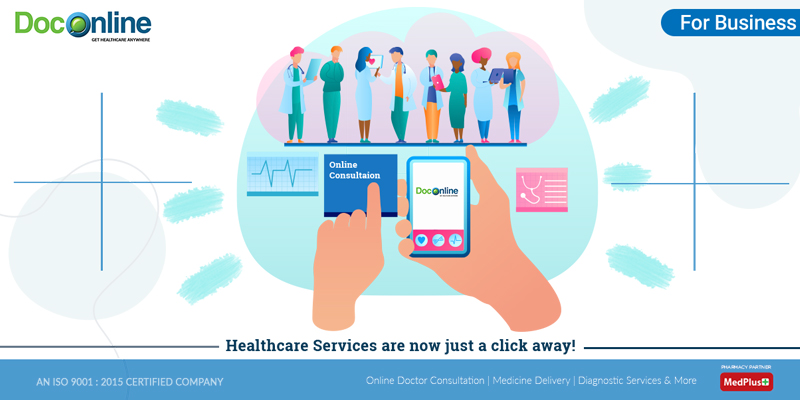The Impact of Subscription Based Healthcare on Traditional Medical Practices
The Impact of Subscription Based Healthcare on Traditional Medical Practices
Blog Article
The Increase of Subscription-Based Healthcare and Its Effect On Person Care
As medical care evolves, the subscription-based design is obtaining grip, assuring to change patient care by supplying predictability and accessibility. The potential for these designs to reshape health care delivery increases pushing concerns about their long-term sustainability and inclusivity. Are these membership solutions the future of healthcare, or do they take the chance of leaving prone populations behind?
Understanding Subscription Medical Care Versions
Comprehending the idea of membership health care models includes taking a look at a transformative method to medical services that stresses cost and ease of access. These versions, often described as direct main treatment (DPC) or concierge medication, have become ingenious options to traditional fee-for-service medical care systems. Subscription medical care permits individuals to pay a set monthly or annual fee for a defined set of clinical solutions, which may consist of unrestricted office brows through, regular check-ups, and fundamental laboratory examinations, without the need for standard insurance billing.
The structure of membership healthcare models is developed to simplify patient care by getting rid of third-party payers and intricate invoicing codes, thus reducing administrative concerns. Medical care service providers can concentrate a lot more on individual treatment, fostering stronger patient-provider partnerships. This version also advertises preventative treatment by urging normal visits, as the economic challenge of per-visit charges is gotten rid of.
The registration design often empowers doctor to take care of smaller individual panels, enabling more tailored treatment. It straightens monetary incentives with client health and wellness results, as service providers are encouraged to preserve person complete satisfaction and health. On the whole, recognizing subscription healthcare designs needs acknowledging their prospective to improve how care is delivered and accessed.
Advantages for Patients and Providers

For carriers, subscription-based versions use the chance to deepen patient-provider partnerships. With a stable profits stream, healthcare specialists can devote more time to every patient, causing a much more extensive and customized treatment experience. This model additionally reduces reliance above individual volumes, minimizing exhaustion and enhancing job complete satisfaction. The emphasis on preventive care within subscription strategies can lead to better patient outcomes and reduced long-term health care costs. By concentrating on continuous care, companies can deal with issues before they rise, eventually benefiting the healthcare system as a whole by decreasing the concern on emergency situation and severe care services.
Issues and challenges
While subscription-based medical care designs present various advantages, they likewise come with a collection of difficulties and concerns that need to be dealt with. This elevates ethical questions about fair access to medical care services.
Financial sustainability of subscription-based designs is one more concern. Companies need to balance the set revenue from subscriptions with the variable prices of medical care solutions, which may fluctuate because of unpredicted clinical requirements. This can produce stress to restrict services or boost costs, page potentially affecting client fulfillment and care quality.
Moreover, regulatory oversight of subscription-based health care versions is still advancing. Addressing these challenges is vital for the fair and effective application of subscription-based healthcare.
Influence On Patient-Doctor Relationships
One significant influence of subscription-based health care models on patient-doctor connections is the potential for improved continuity and personalized care. By taking on a registration version, physicians can handle a smaller sized person panel, enabling for more dedicated time with each person. This boosted accessibility fosters a much deeper understanding of a client's clinical background, lifestyle, and preferences, allowing much more tailored treatment plans and interventions.

Nevertheless, it is very important to acknowledge that while subscription-based designs may profit those that can afford them, they could inadvertently widen medical care differences. Individuals who are not able to take part in these models could experience lower access to customized treatment, possibly affecting their partnerships with medical care companies. Therefore, while the membership design offers encouraging advantages for patient-doctor partnerships, it also postures challenges that require to be dealt with advice to make sure equitable healthcare access.
Future of Healthcare Accessibility

The duty of modern technology can not be neglected in this change. Telemedicine platforms and digital wellness documents help with seamless interaction in between individuals and doctor, breaking down geographical and logistical barriers. Additionally, developments in artificial intelligence and data analytics can further individualize medical treatment by forecasting person demands and maximizing therapy strategies.
Nevertheless, the future of health care gain access to likewise presents obstacles, such as ensuring equity throughout various socio-economic groups. Policymakers and healthcare providers have to work together to link the electronic divide, guaranteeing that subscription-based designs stay economical and comprehensive. As these systems mature, they hold the promise of making healthcare much more available, reliable, and patient-centric.
Verdict
Subscription-based health care designs are improving person treatment by providing a steady cost structure and improving availability. The surge of subscription-based medical care encourages proactive client involvement, which has the possible to boost person end results and complete satisfaction, indicating a transformative change in health care distribution.
As medical care progresses, the subscription-based version is obtaining grip, assuring to revolutionize client treatment by supplying predictability and access.Subscription-based medical care versions offer distinct benefits for both people and companies, boosting the general health care experience.As medical care systems evolve, the future of healthcare gain access to regularly pivots on the assimilation of cutting-edge versions and technologies.Subscription-based healthcare versions are reshaping individual treatment by offering a secure expense structure and enhancing accessibility. The increase of subscription-based health care encourages positive individual interaction, which has the prospective to enhance client results and satisfaction, signaling a transformative change in health care delivery.
Report this page